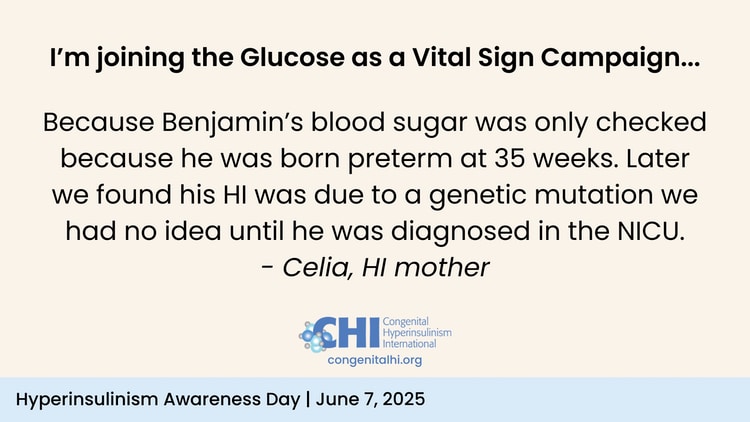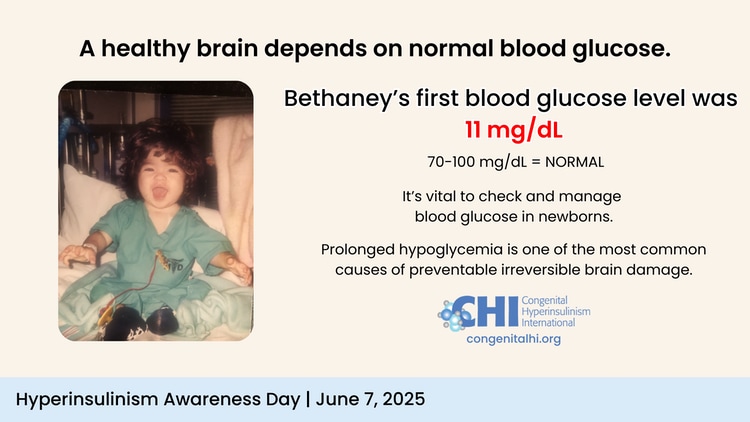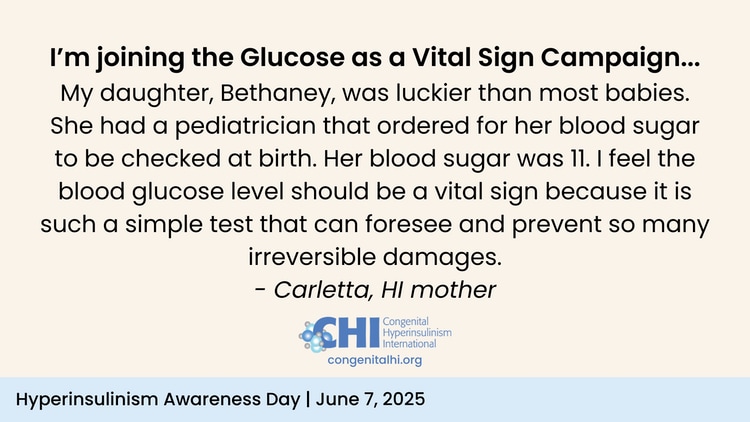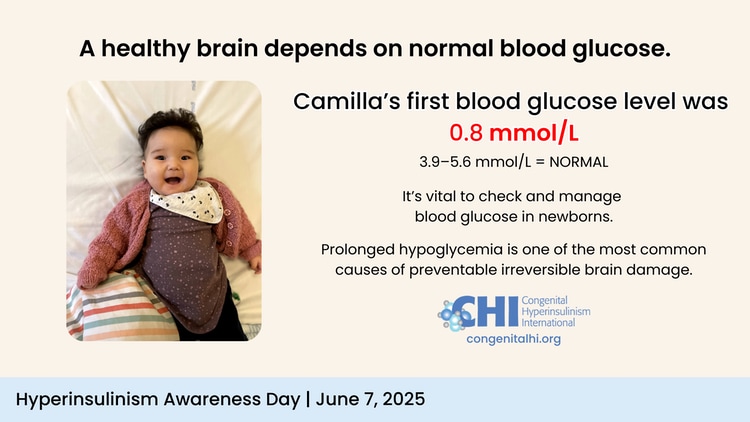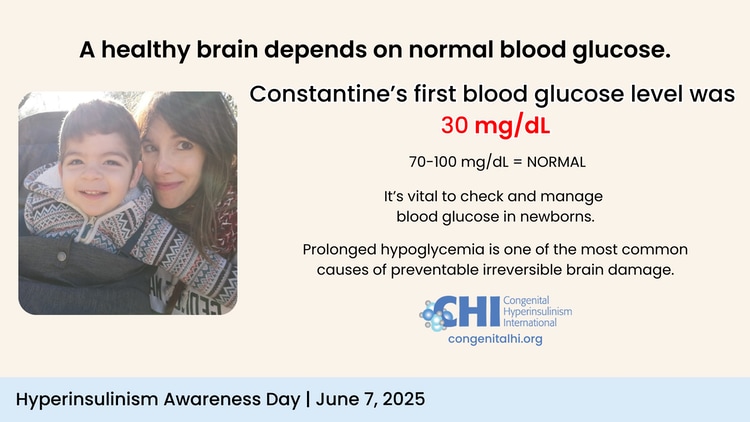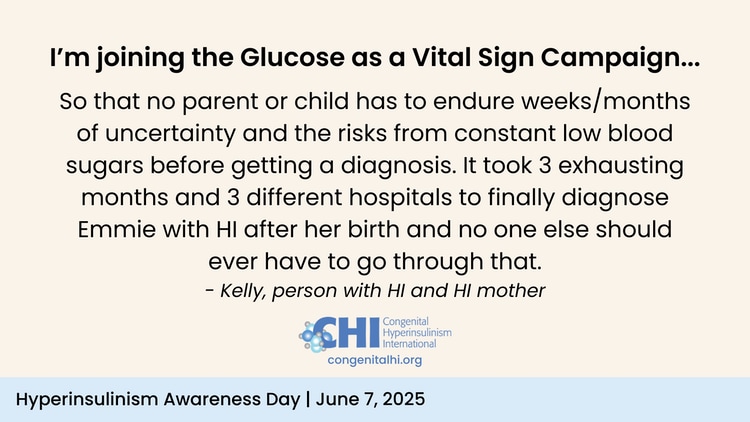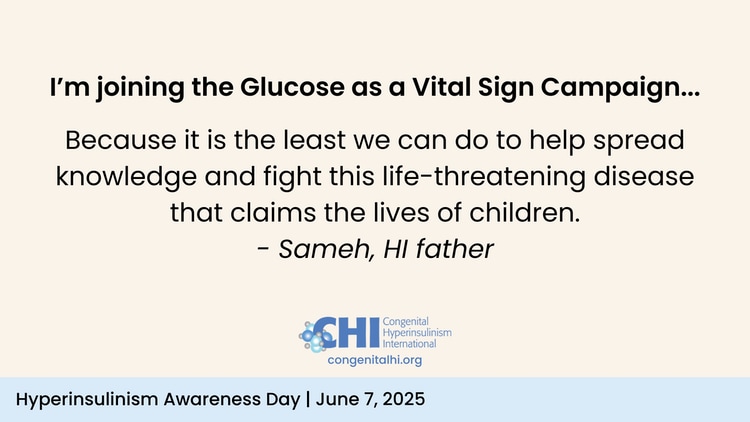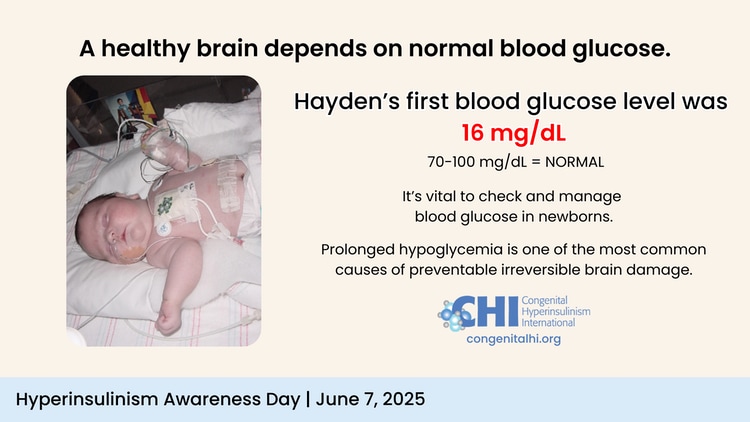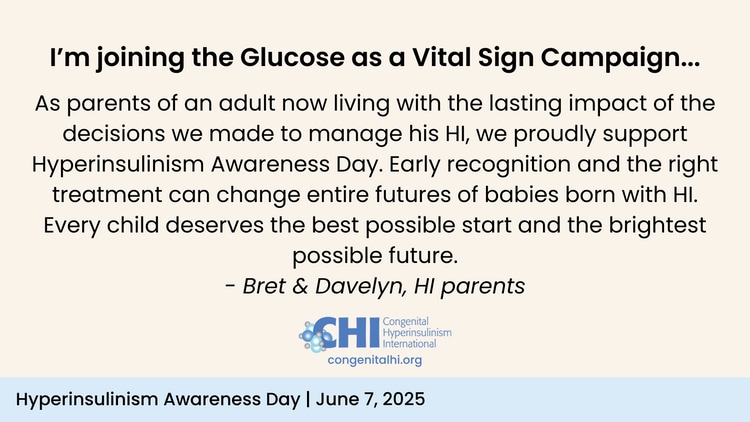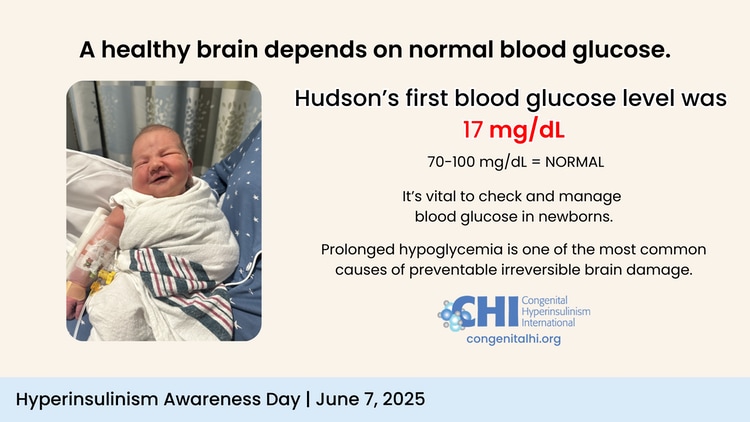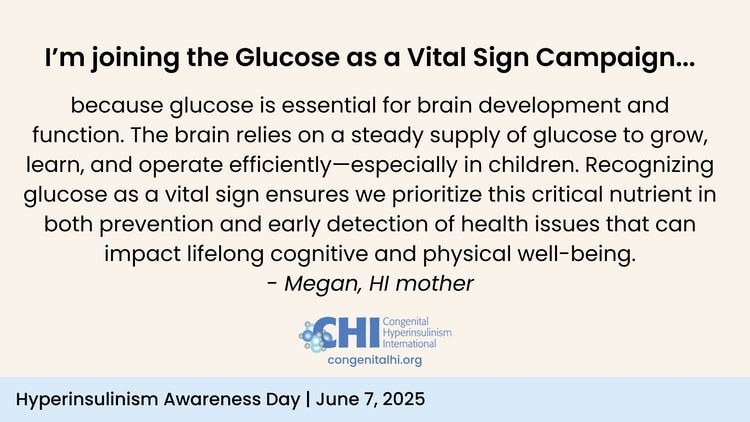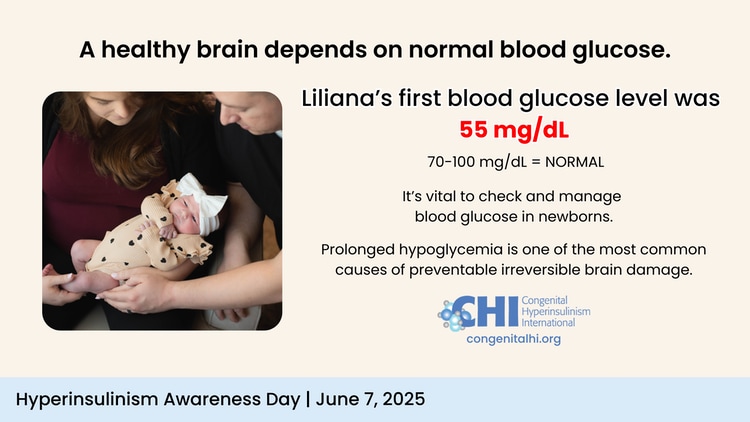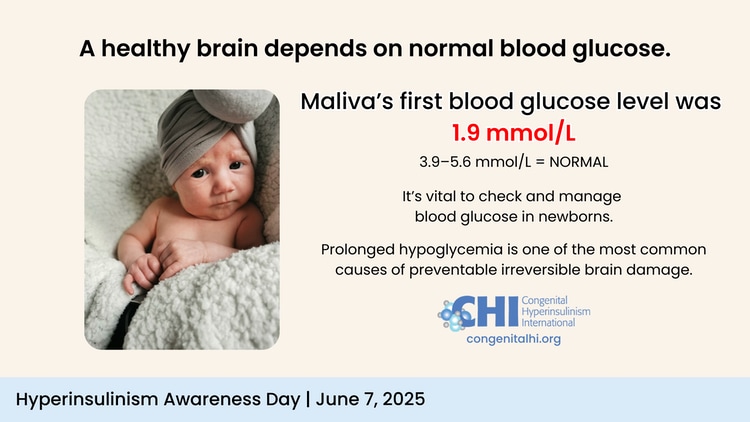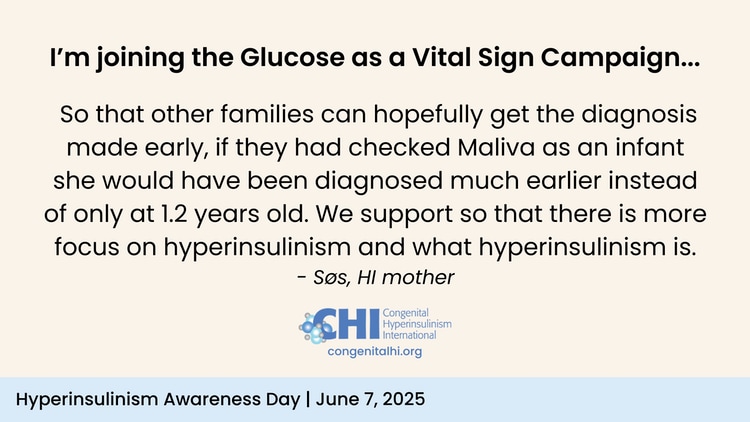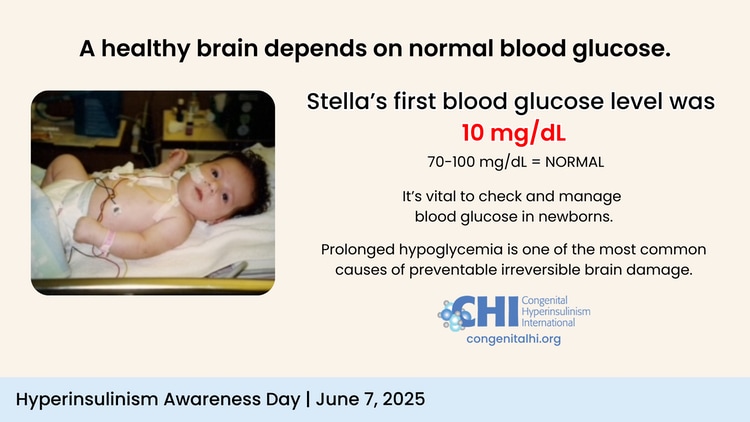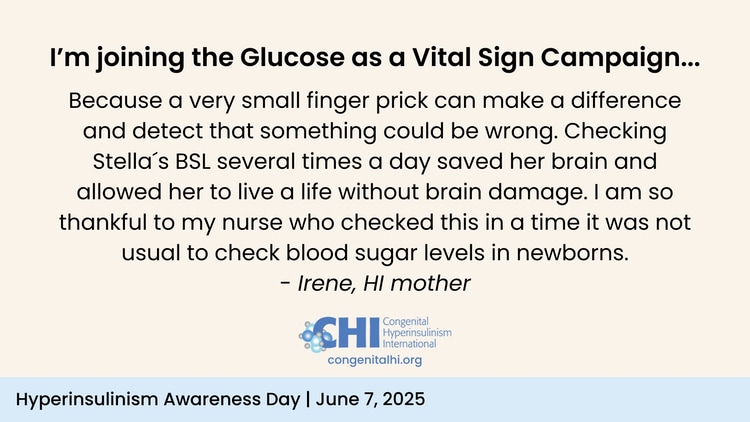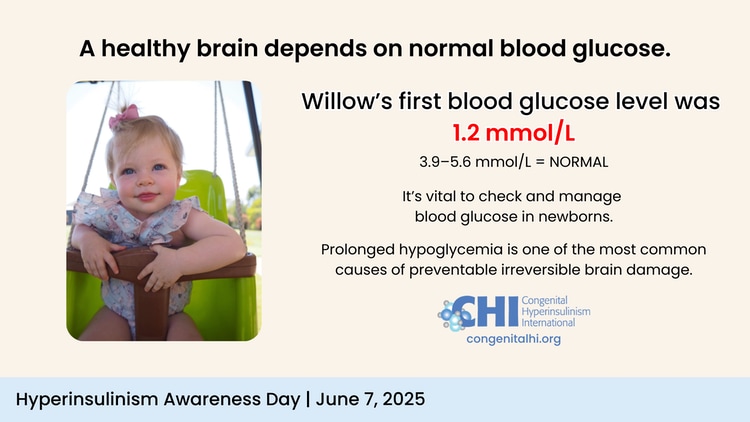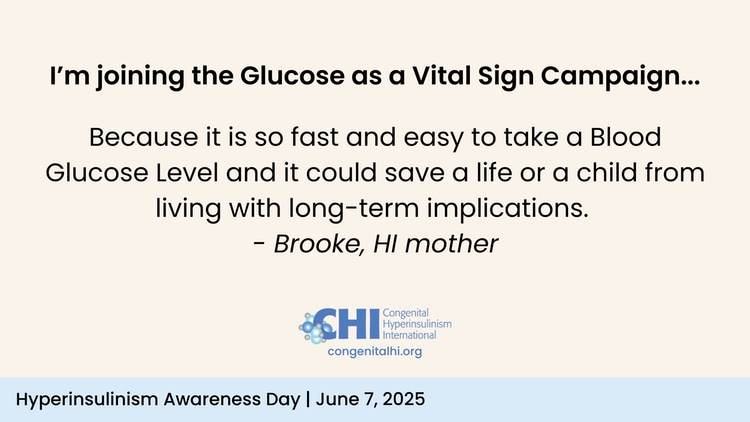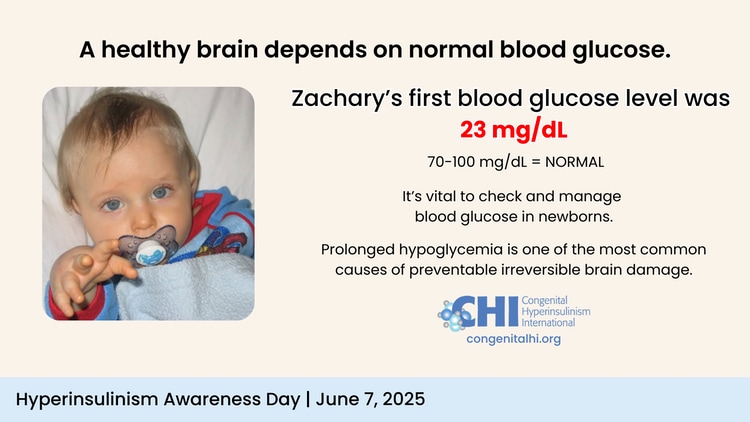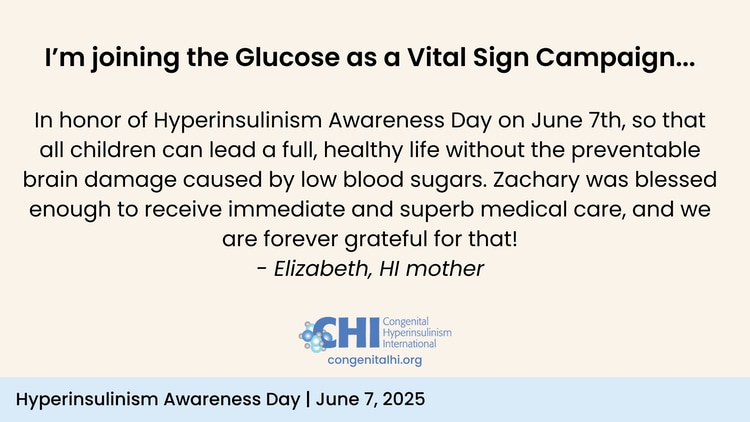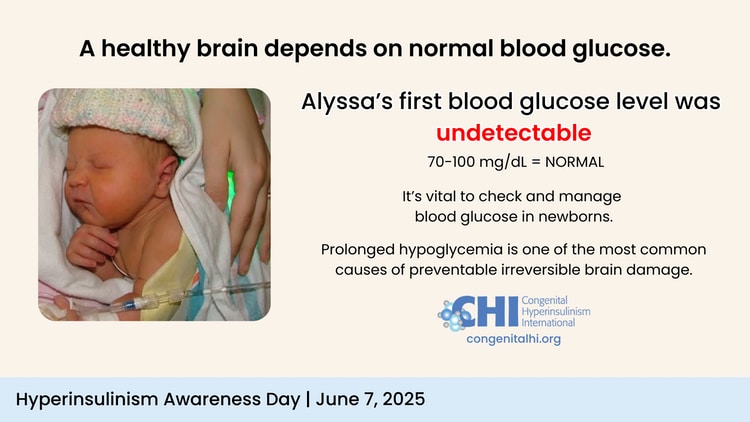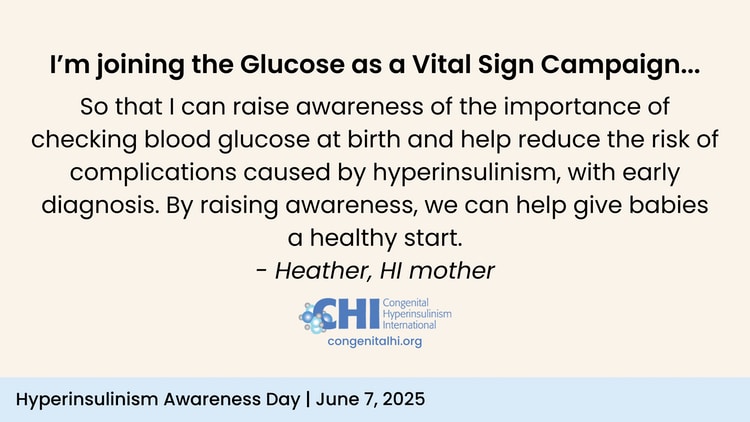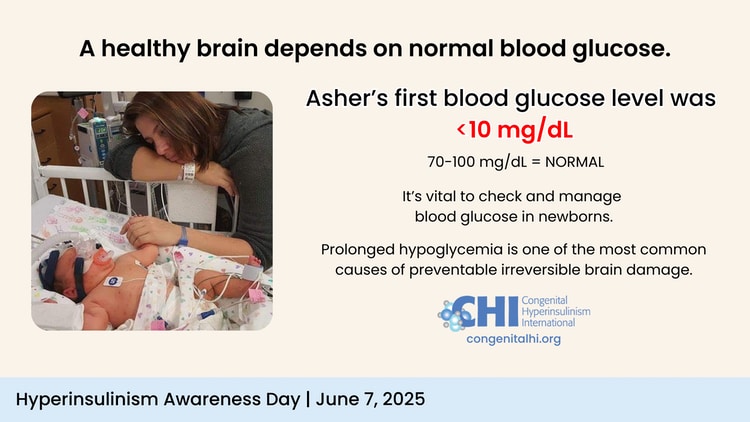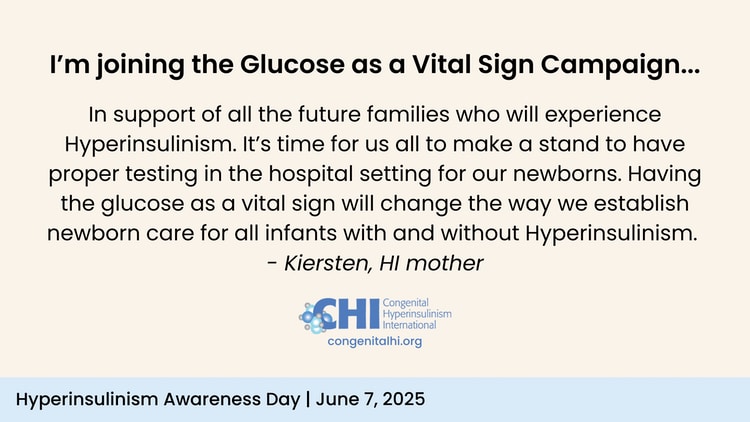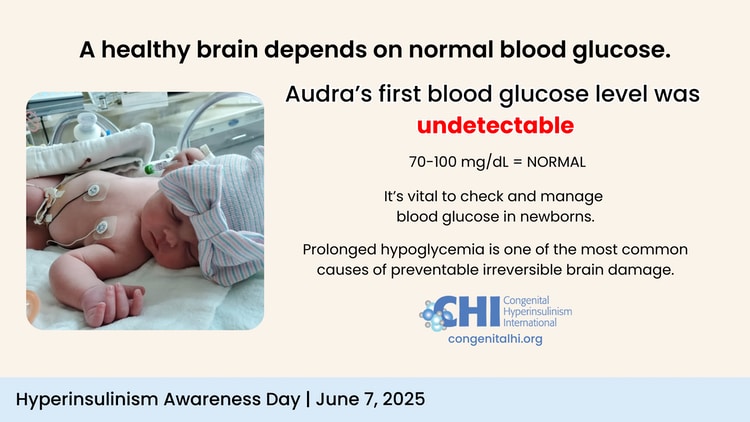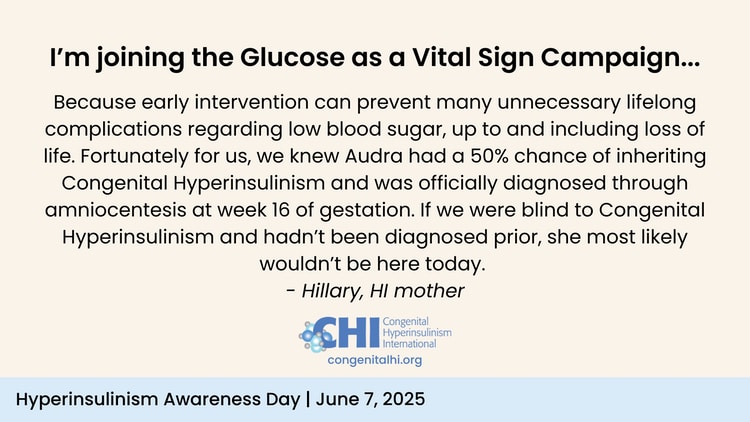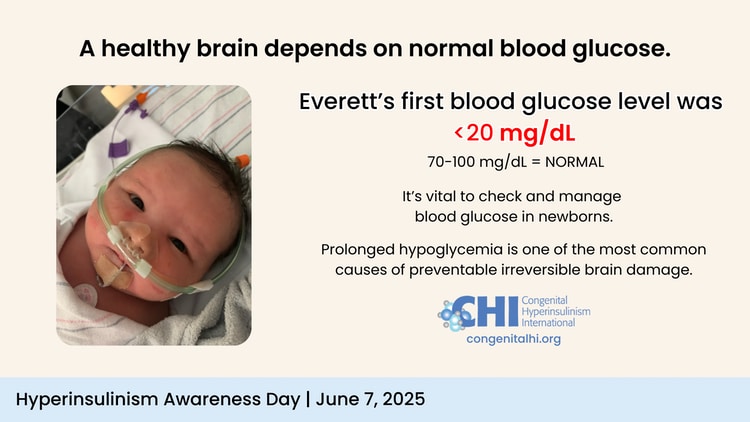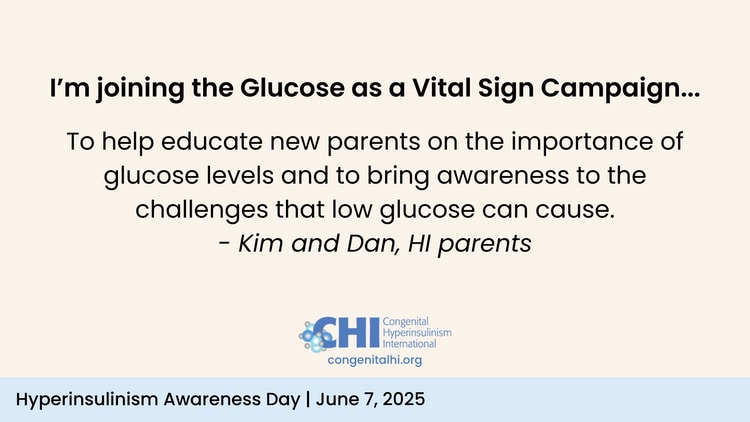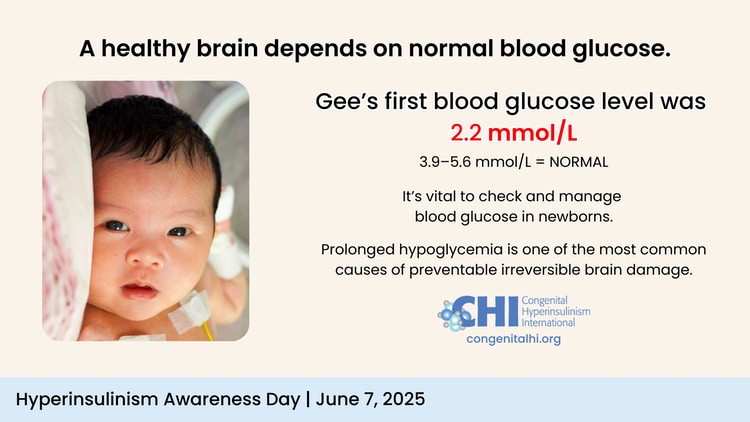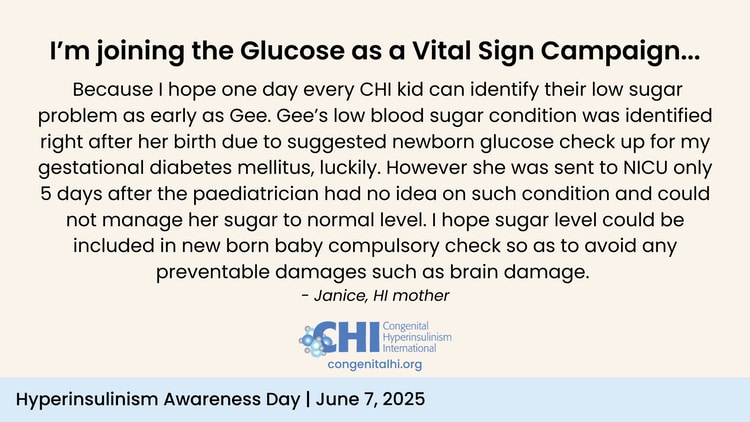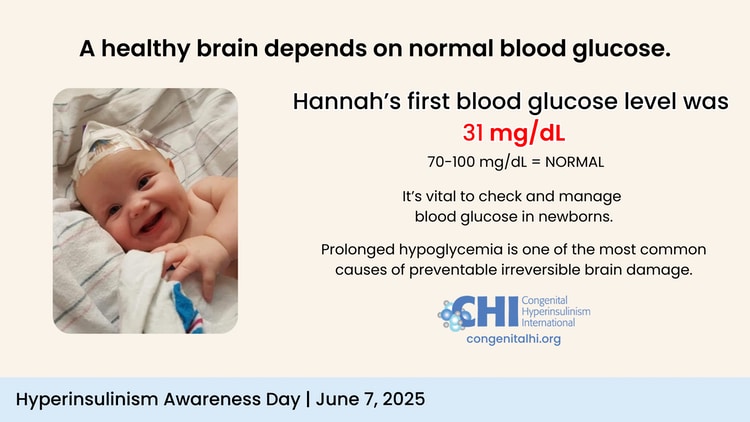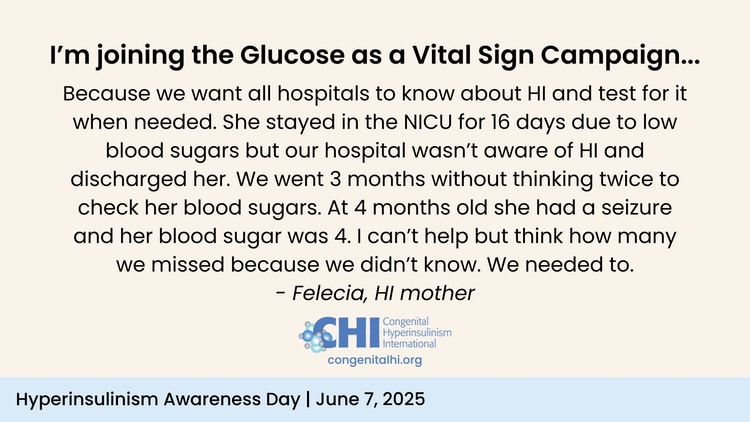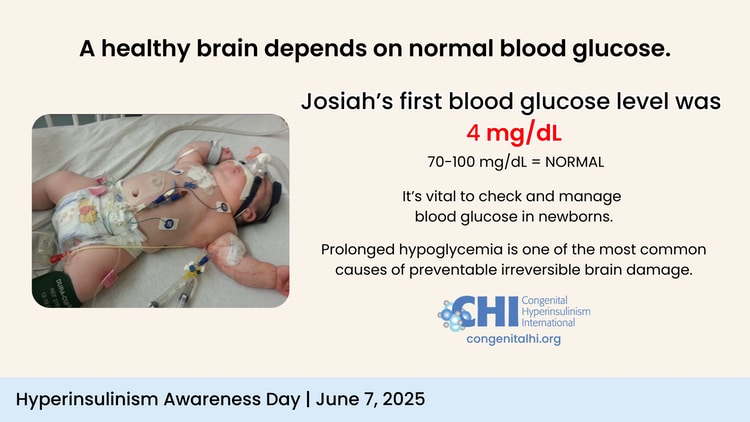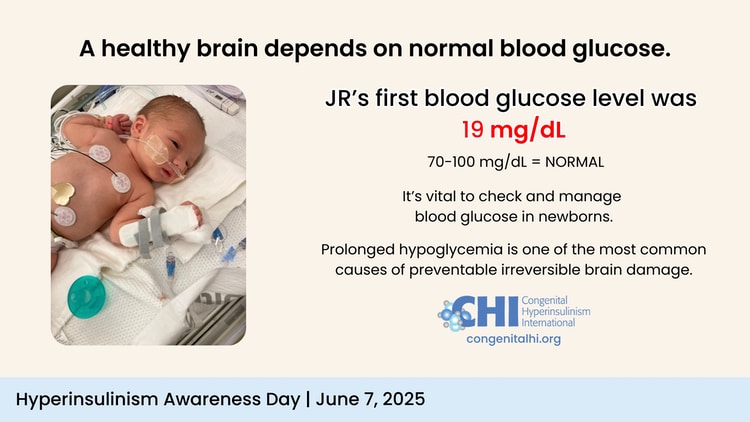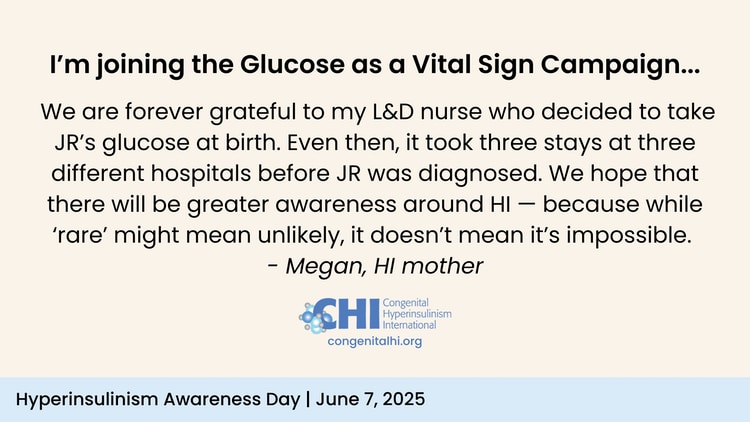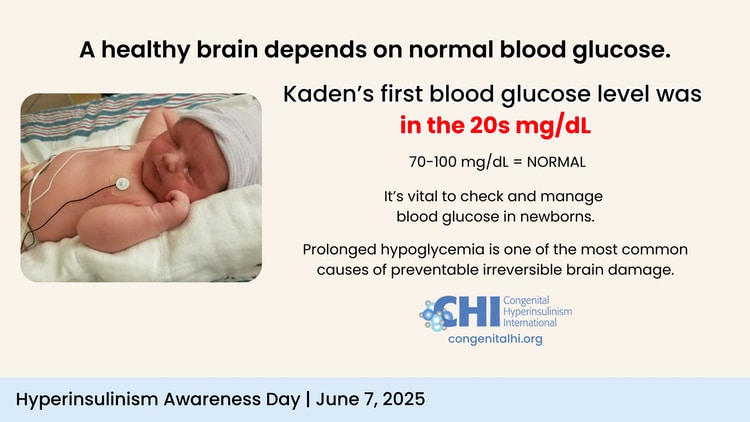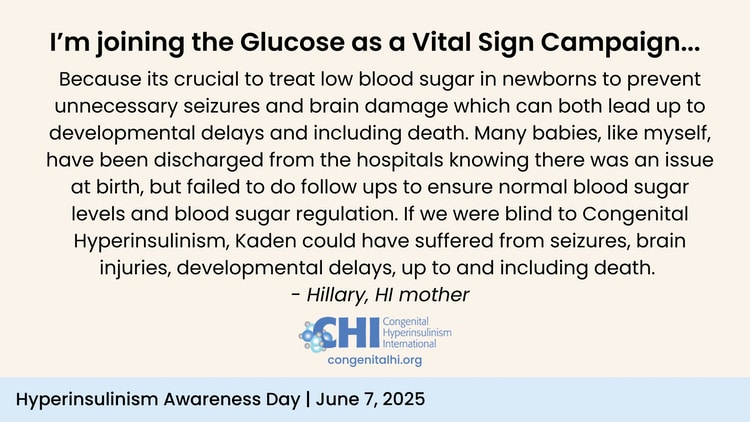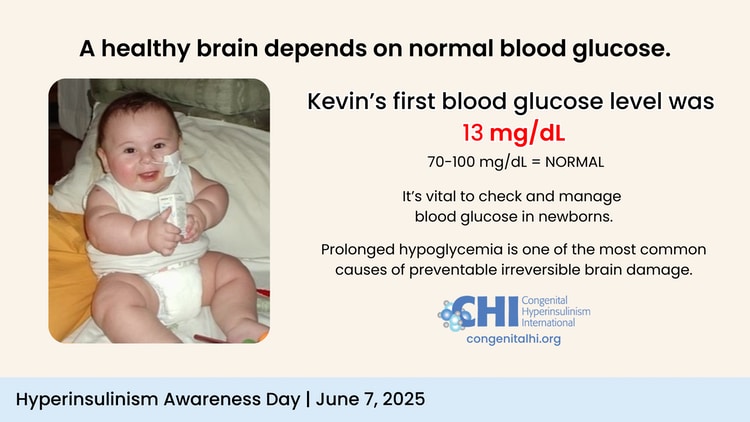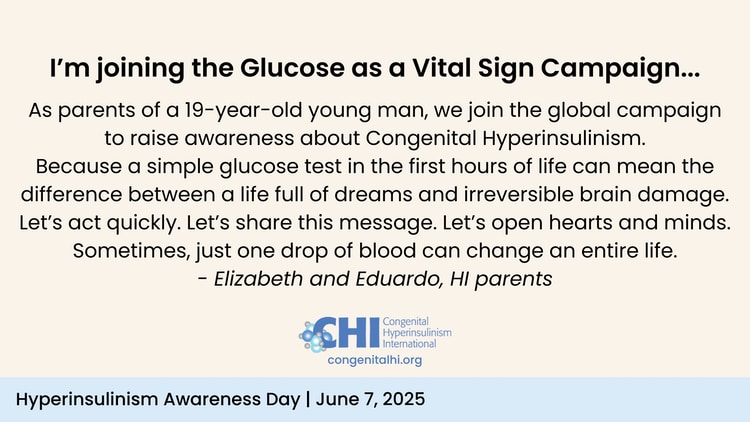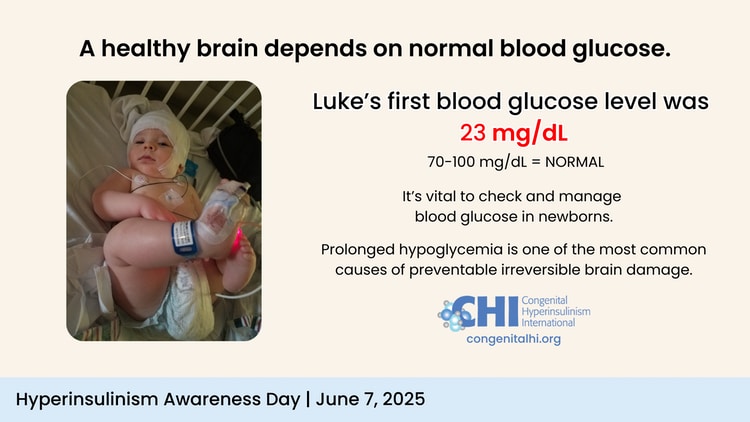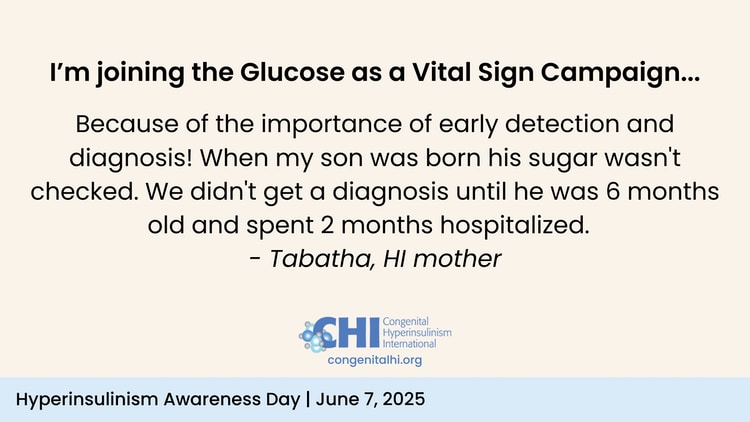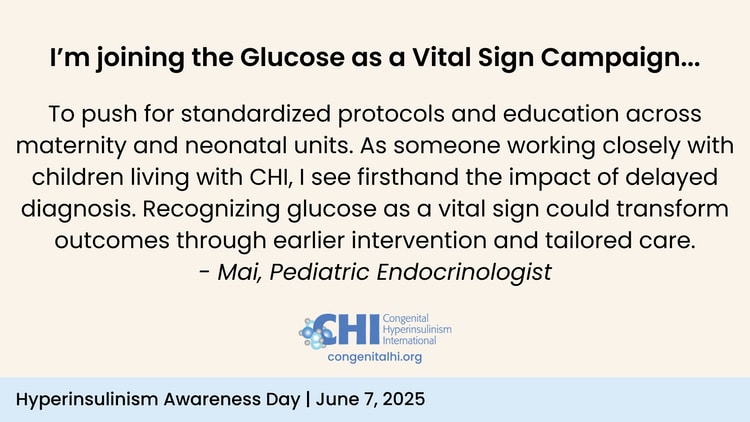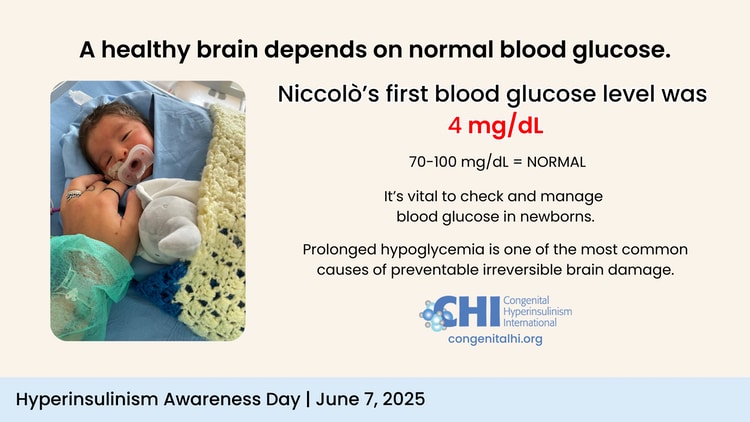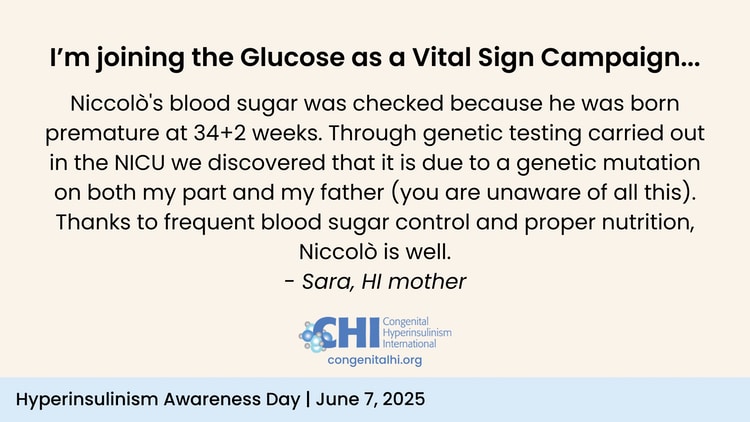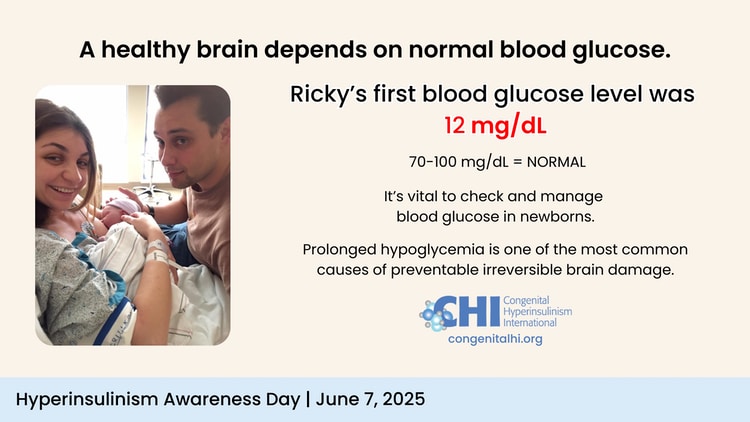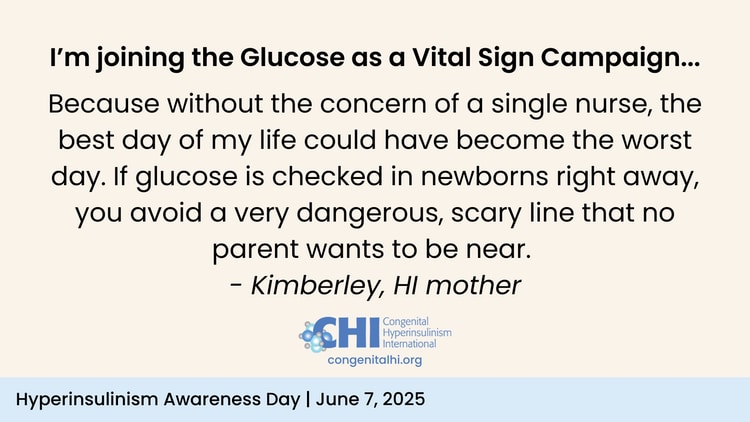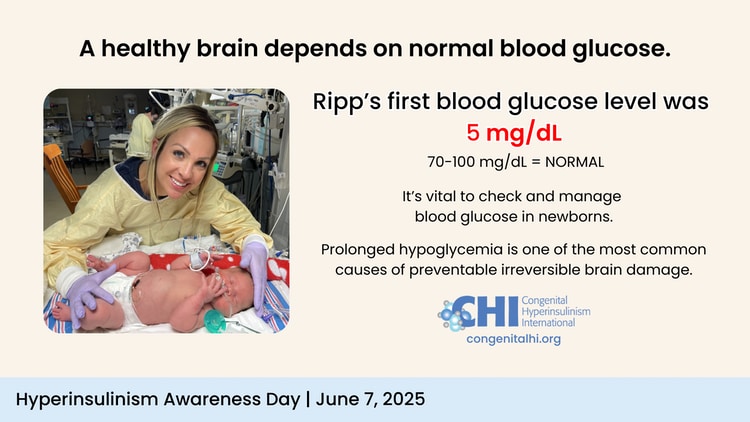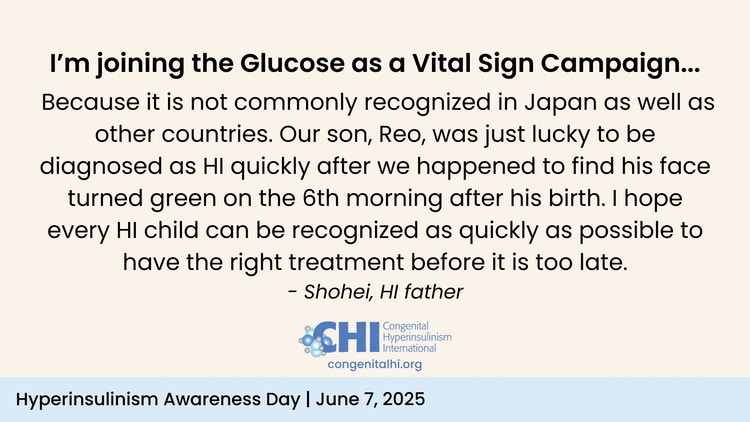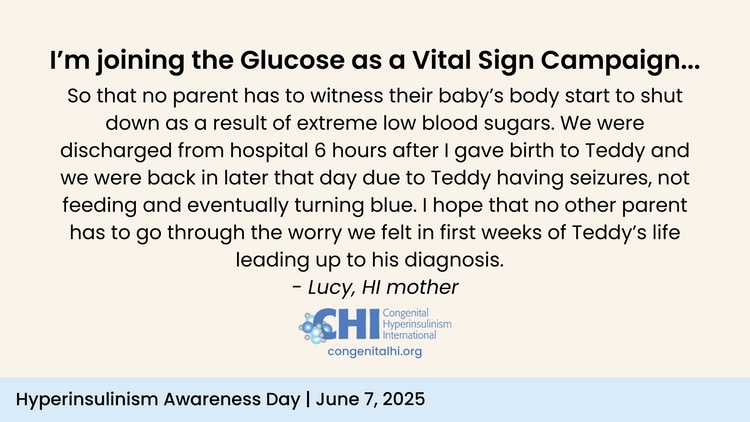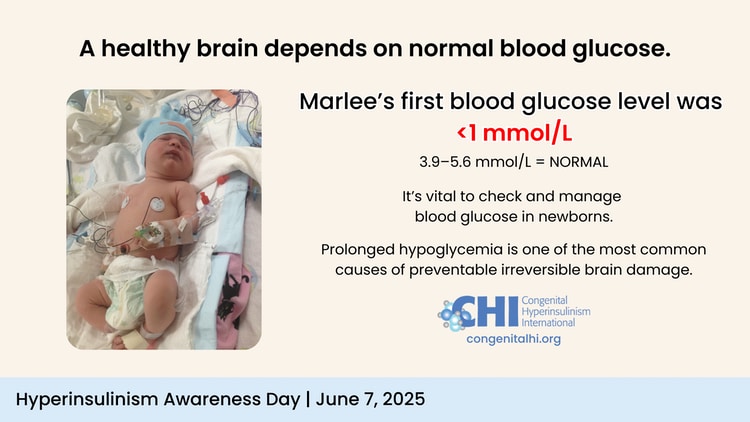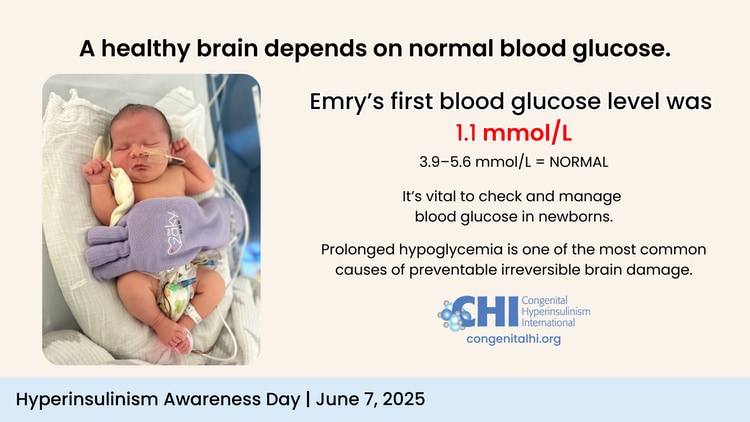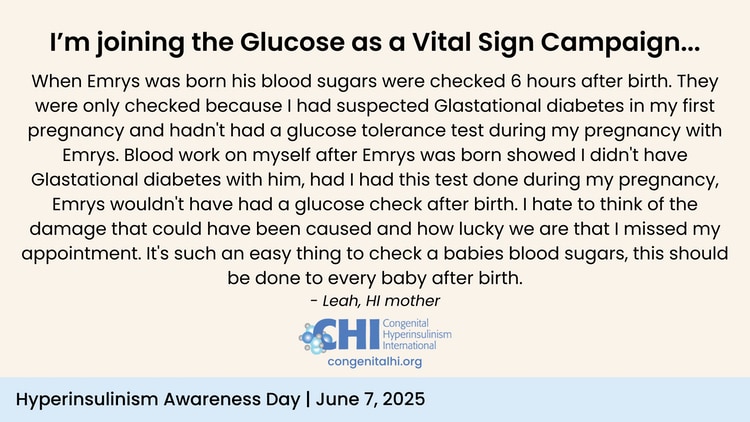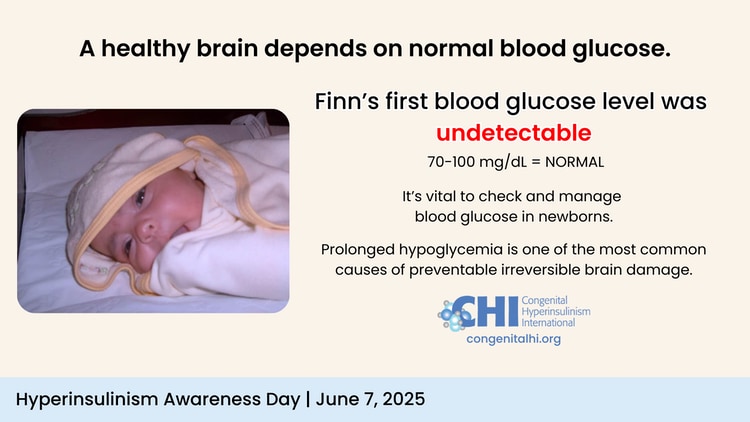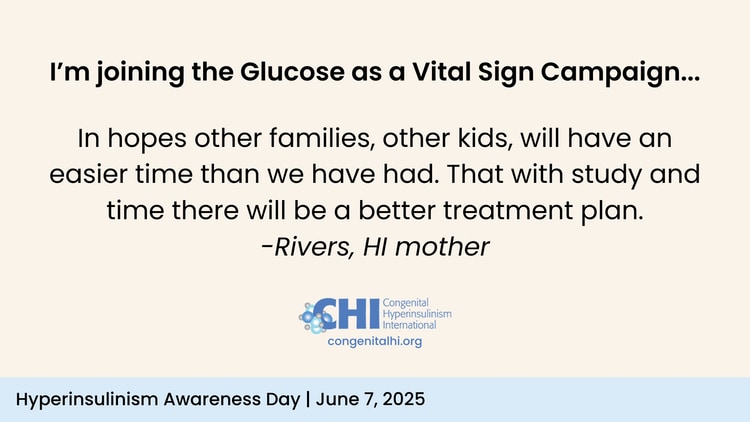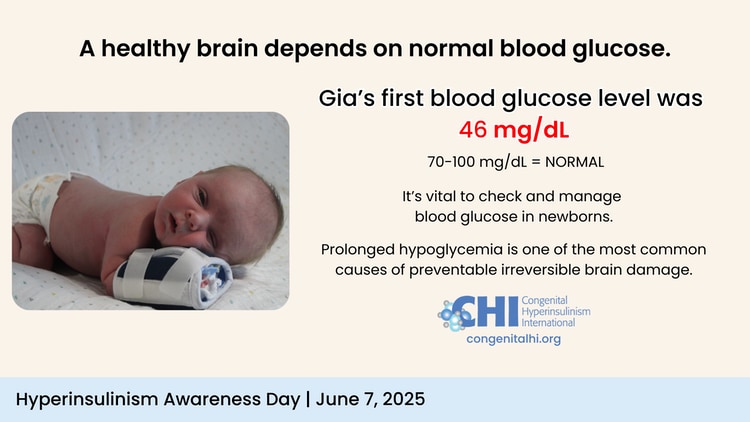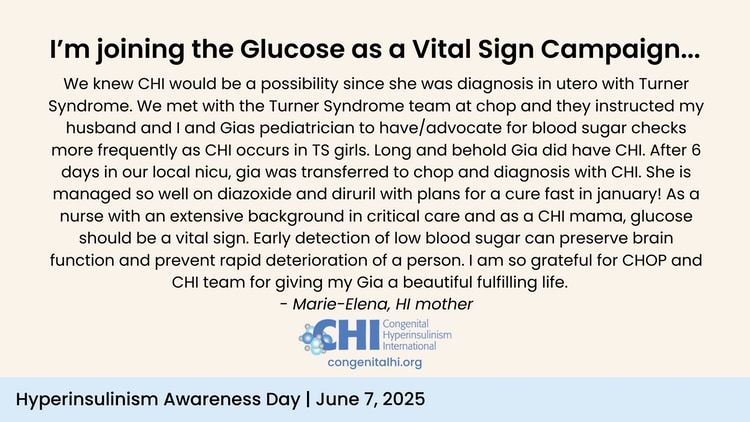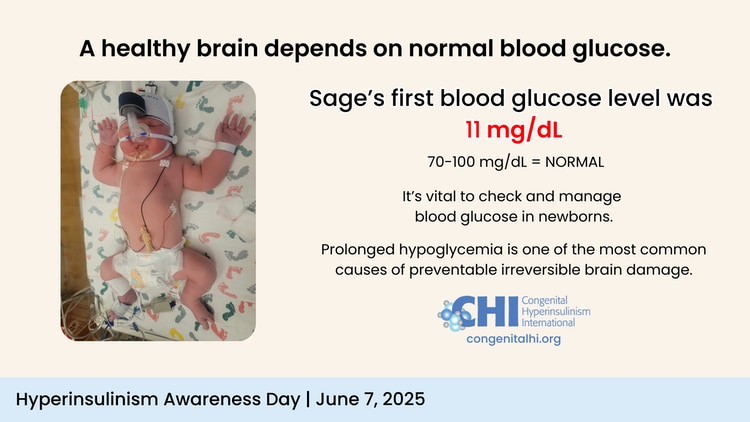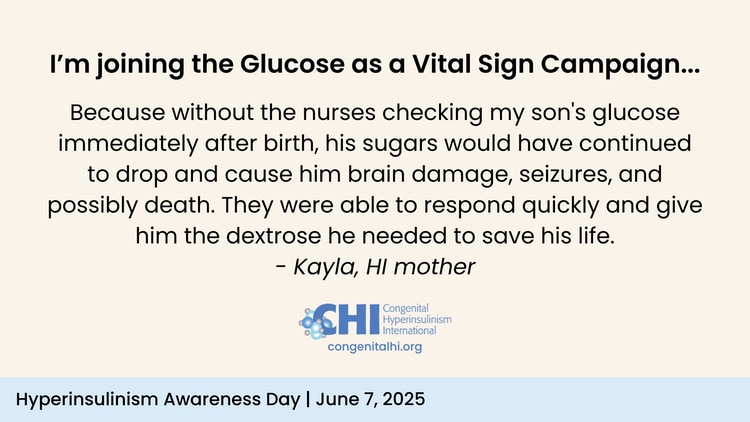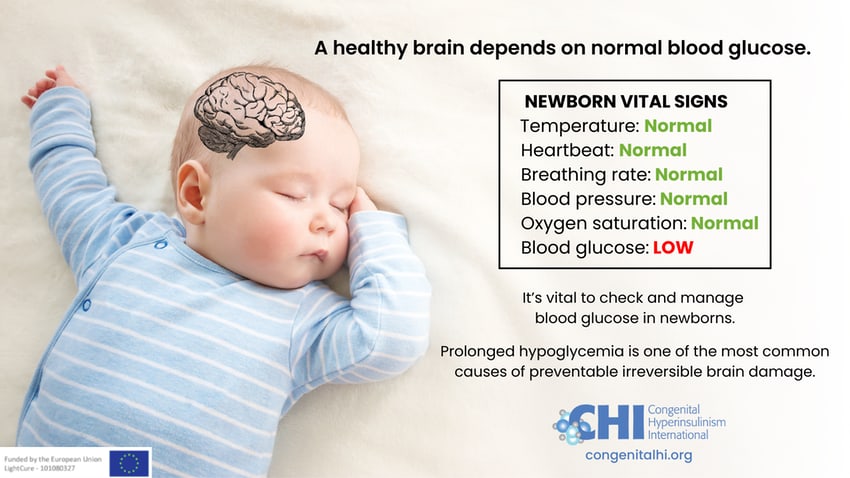
Congenital Hyperinsulinism International (CHI) observed Hyperinsulinism Awareness Day on June 7th, 2025. Congenital hyperinsulinism (HI) is the most frequent cause of severe, persistent hypoglycemia (low blood sugar) in newborns.
“Hyperinsulinism is something everyone should know about because the worst consequences of the condition are all preventable with timely recognition and management,“ says Julie Raskin, CEO of CHI. “CHI raises global awareness of the condition and offers vital support to those affected and their families. No one should have to face HI alone.”
Jump ahead to view a slideshow of our social media campaign.
Untreated or improperly treated hypoglycemia can be dangerous because the brain relies on glucose as its primary source of energy. Without enough glucose, permanent brain damage can occur, potentially impacting a child’s development. The risk of brain damage is higher if HI is not diagnosed and treated quickly or if treatment does not work well at preventing ongoing hypoglycemia. However, with the right treatment, hypoglycemia can be managed, and brain damage can be avoided. Treatment options for people with HI are actively evolving through on-going clinical trials.
In most countries, Persistent HI has an incidence of up to 1:28,000 births. Some forms of HI are linked to a genetic defect and can persist throughout life; others will resolve more quickly and are considered transient. Transient cases are far more common, occurring as frequently as 1 in 1,200 births. Brain damage is a risk in both cases. CHI hopes that HI Awareness Day will create a broader knowledge, and better understanding of the need for prompt diagnosis and management by established protocols.
“In babies with HI, the pancreas secretes insulin in an uncontrolled way, even when blood glucose levels are low. These babies present at birth with severe hypoglycemia that can lead to irreversible brain damage therefore recognizing the condition and treating it is of the greatest urgency,” says Diva De Leon-Crutchlow, MD, director of Children’s Hospital of Philadelphia’s Hyperinsulinism Center and Chief of the Division of Endocrinology at CHOP. “In hospital maternity wards and pediatricians’ offices, glucose is a vital sign that must not be ignored.”
Social media campaign:
HI families shared their baby photo, first recorded glucose value and a statement to demonstrate the importance of Glucose as a Vital Sign. Participants in our campaign directly supported our mission to raise awareness and prevent avoidable brain damage.
We encourage you to continue to share our Glucose as a Vital Sign campaign image on your social media, with family and friends, and with medical professionals. The images are available to download in multiple languages here below (clicking either link will initiate an automatic download of the image to your “Downloads” folder):
About the Glucose as a Vital Sign campaign:
The Glucose as a Vital Sign campaign began with CHI’s Collaborative Research Network (CRN) in 2023 with the goal of educating medical professionals and the general public about the consequences of undiagnosed hyperinsulinism and the importance of early blood glucose checks. The CRN is a dynamic international collaboration of 60+ researchers, clinicians, and expert patient and caregiver advocates working together to accelerate hyperinsulinism research. Their input was essential in the creation and dissemination of the campaign. You can view a list of our CRN members here.


